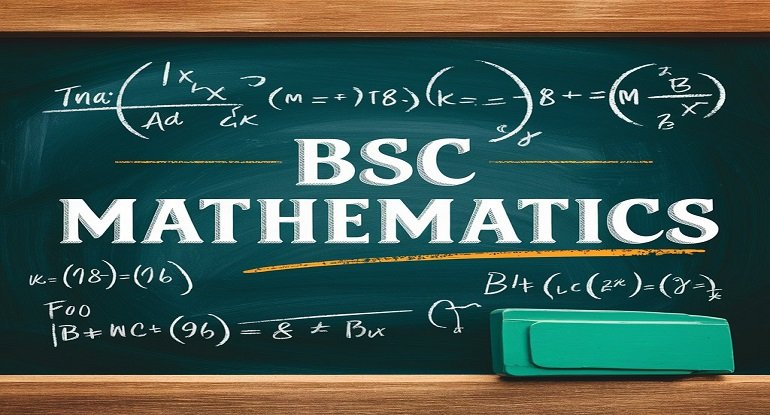
The Department of Mathematics was established in the year 2009 with the introduction of the Undergraduate Course in Mathematics. The postgraduate degree programme was started in the year 2012. The Mission of the department is, To develop in students logical thinking, analytical reasoning and problem solving skills. To equip the students with more technical and technological skills and scientific computing techniques based on Mathematical methods. To equip them with enhanced employable skills. To offer at the post graduate level a wide array of mathematical approaches in a scientific computing environment. The department celebrated the mathematician Ramanujam Birthday, as part of the celebrations ‘Math Quiz’, an Intercollegiate Math cultural for all students of the city colleges.
Typically, BSc Mathematics is a three-year program, but the duration may vary depending on the country and university.
Differential and Integral Calculus.
Abstract and Linear Algebra.
Rigorous study of real numbers and functions.
Study of complex numbers and functions.
Study of ordinary and partial differential equations.
Methods for solving mathematical problems using numerical methods.
Applying mathematical concepts to real-world situations.
Study of randomness and uncertainty.
Analyzing and interpreting data using statistical methods.
Study of shapes, sizes, properties, and dimensions.
Study of spatial properties that are preserved under continuous transformations.
Number Theory, Graph Theory, Operations Research, etc.
Introduction to Programming: Often includes programming languages like Python, MATLAB, or C++.
Studying the efficiency of algorithms.
Some programs may include practical components such as internships, projects, or research work.
Teaching at the school or college level. Further studies (MSc, PhD) may be required for higher education positions.
Assessing and managing risk in insurance, finance, and pension sectors.
Analyzing and interpreting data for various industries.
Extracting meaningful insights from large datasets.
Applying mathematical methods to decision-making and problem-solving in organizations.
Developing and analyzing algorithms for secure communication.
Analyzing financial data and trends for investment decisions.
Utilizing mathematical algorithms in software development.
Curriculum development, educational consulting, and educational technology.
Analyzing market trends and consumer behavior.
Opportunities in various government sectors that require analytical skills.
Applied mathematics in engineering fields like civil, mechanical, or electrical engineering.
Contributing to research in areas like physics, biology, or computer science.
Providing mathematical consulting services to businesses and industries.
Assessing and managing financial risks for businesses.